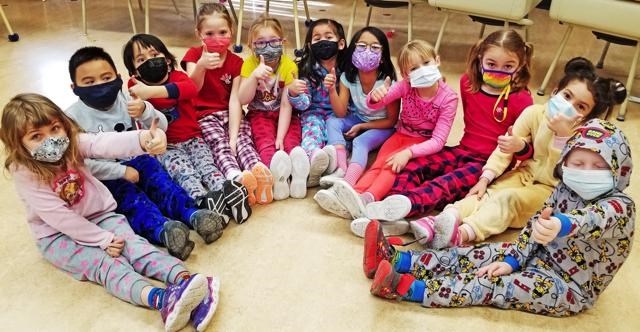WEYBURN - The academic achievements of students in the Holy Family Roman Catholic Separate School Division were celebrated at the monthly board meeting.
Acknowledging that the 2020-21 school year “was not a normal school year”, Terry Jordens presented the facts about how the students did in a year that mixed in-person and remote learning.
The academic achievements were shared from all levels from kindergarten to Grade 9 at the Holy Family schools, in reading, writing, global competency skills, math, and readiness of kindergarten students for entering Grade 1.
The data of how Holy Family students did was compared to the provincial averages, and Jordens noted there are differences because the province takes out data for intensive needs students, and those who are learning English as a new language, where Holy Family combines all of the students in the statistics.
The school division had 146 students who were learning English as a new language, along with 56 students with intensive needs, and 28 self-identified Indigenous students, with 15 Metis students.
Of those learning English, 57 per cent of the students in Holy Family are at St. Michael School in Weyburn, and 31 per cent attend St. Augustine in Wilcox. They speak over 25 first languages, with 80 per cent from the Philippines, and seven per cent are Malayan, from a region of India.
Jordens noted that in June of this school year, 12 of these students tested “off the scales” and are no longer considered to be English-learning students.
Of the 56 intensive needs students, 11 were autistic, 12 had intellectual disabilities and 19 were undiagnosed, or were in the process of being diagnosed.
In the area of reading, the provincial target was to have 80 per cent of students able to read at or above their grade level, and in Holy Family, they reached 75 per cent.
For students in Grades 1-3, they were assessed at the start of the year at 68 per cent of their grade level with scores doubling from October of 2020 to June 2021.
A big factor for the level that students started the year at was being in a pandemic year, said Jordens, with an extended Easter break due to COVID. For those in kindergarten, she noted remote learning with five-year-olds really doesn’t work very well, and is much different than for 13-year-olds.
Across Canada, students in Grades 1-3 were on average six to eight months below where their reading scores should be, due to the pandemic year.
“If we don’t focus on it now, we’ll see these scores continue right through future grades,” said Jordens. “We’re not alone in what we’re seeing in the data.”
To that end, there are reading coaches available in three of the five schools of Holy Family, and they are helping to focus on improving reading skills at all grade levels, in particular the early grades.
A cause for celebration at Holy Family is that 89 per cent of kindergarten students were assessed as “ready to learn” at the end of the school year going into Grade 1, and this was 10 per cent higher than the provincial average.
In kindergarten, “we make a conscious effort on keeping a low teacher-pupil ratio,” said Jordens, plus every student is assessed and screened to know what level of readiness they are at prior to entering Grade 1.
In math, Holy Family had 87 per cent of students achieve “grade level”, and with writing, the most students in the last three years were assessed as writing at grade level.
With global competency skills, Holy Family students grew by two per cent in citizenship, and 11 per cent in character.
“It was really nice to see as kids self-reported that,” commented Jordens.




